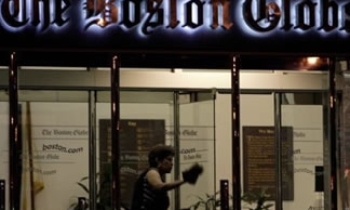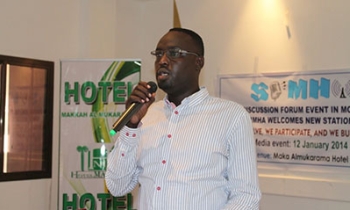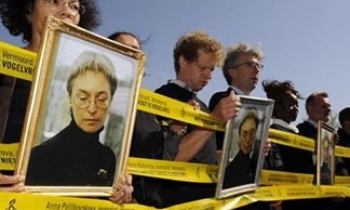The CIA leak trial and I Lewis Libby’s conviction has not been good news for US journalists. There is widespread apprehension that reporters and their editors must now more than ever balance their pursuit of news with an increased risk of landing in court.

Ten out of 19 of the witnesses in Libby’s trial were journalists, a spectacle that would have been unthinkable only a few years ago, the New York Times commented. “Even more unusual, three of them played a central role in securing the conviction of Libby, their former source, by testifying about conversations they had once fought to keep secret by invoking the majesty of the First Amendment and the crucial role that confidential informers play in informing citizens in a free society.”
Eve Burton, general counsel of the Hearst Corp, which owns the San Francisco Chronicle and other papers, told the Associated Press (AP) that editors would now have to abandon at least three stories involving government activity in recent months because of a more hostile legal environment.
Burton’s company has been hit with 84 subpoenas in the past two years, including two against San Franciso Chronicle reporters after they published investigative articles about baseball steroid use in the BALCO scandal. After months, the case was resolved after a defence lawyer admitted he was the source of the leak.
Previously, Hearst might have seen five subpoenas in a two-year period, a jump that Burton blames partly on a Bush regime eager to go after journalists, the AP report said. Hearst has negotiated with several of its phone companies to be notified if the Justice Department secretly subpoenas their calling records.
“The real losers are the public, because they will learn less information about matters of public concern and their government,” Burton said.
The Libby case also split the united front that news organisations had long presented, the NY Times regretted. Some news organisations hired criminal lawyers and made quiet deals with Fitzgerald. Others, including NY Times, relied on their longtime First Amendment counsel and waged a public war against Fitzgerald’s subpoenas, one ending in defeat at the United States Supreme Court.
In a time of declining print advertising revenue, newspapers and other media companies are confronting the prospect of million-dollar fines, hefty legal fees and jail time if they resist a subpoena.

Dave Tomlin, assistant general counsel for the Associated Press, said the news organisation would take a closer look at its newsgathering policies to account for the growing “everyday reality” in which reporters are forced to testify. At the same time, he said an effective policy must give flexibility to its reporters and editors.
At the New York Times, reporters are asked to consider not storing sensitive notes on company computers and to use disposable phones if necessary to protect a source. Names of unidentified sources must be known to at least one editor, so that reporters “don’t make deals that bind their company willy-nilly.”
“An earlier generation of reporters had maintained that there were no circumstances under which they would testify against their sources and that the flow of important information to the public could only be guaranteed by taking an absolutist position,” the NY Times said.
Jane Kirtley, who teaches media law and ethics at the University of Minnesota, told the newspaper, “What the public learned from the Libby trial, said is that the modern journalist is not nearly as tough. Under sufficient pressure journalists will testify for the prosecution against their source. I don’t think that was a given before all of this began.”
Press freedom advocates say what may be needed is a federal shield law protecting journalists from disclosing confidential information in court, the AP report said. Thirtytwo states and the District of Columbia have such laws, but there is no federal protection.

Until then, reporters will have to find ways to survive, said Roy Peter Clark of the Poynter Institute. “However bad we may look on a particular day, once the gears of the sausage machine are revealed, I hope people realise that journalists don’t have to be perfect in order to be responsible,” Clark said.
Special Prosecutor Patrick Fitzgerald introduced a new tool to browbeat journalists. Prosecutors asked possible sources for reporters to sign waivers instructing journalists to disregard confidentiality deals, and most of the sources did, perhaps in earnest and perhaps in fear of the consequences of refusing.
“What Libby was doing was not whistle blowing - the reporters were a witness to a potential crime. There is a difference,” Fitzgerald told the San Francisco Chronicle. “There was no other way to proceed in this case but to talk with the reporters in question. If reporters did not testify, we could not have proven that a lie had been told. I caution people to keep this in context.”
“Fitzgerald was overzealous,” Bob Zelnick, a Boston University journalism professor, told the Washington Post, and “the effect is serious and adverse. It’s going to take a long time for reporters and their sources to figure out how to deal with each other in a way that doesn’t risk contempt citations and imprisonment.”









